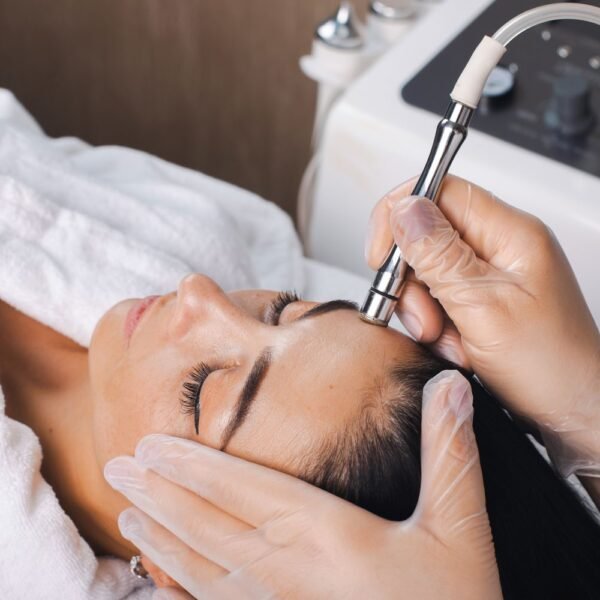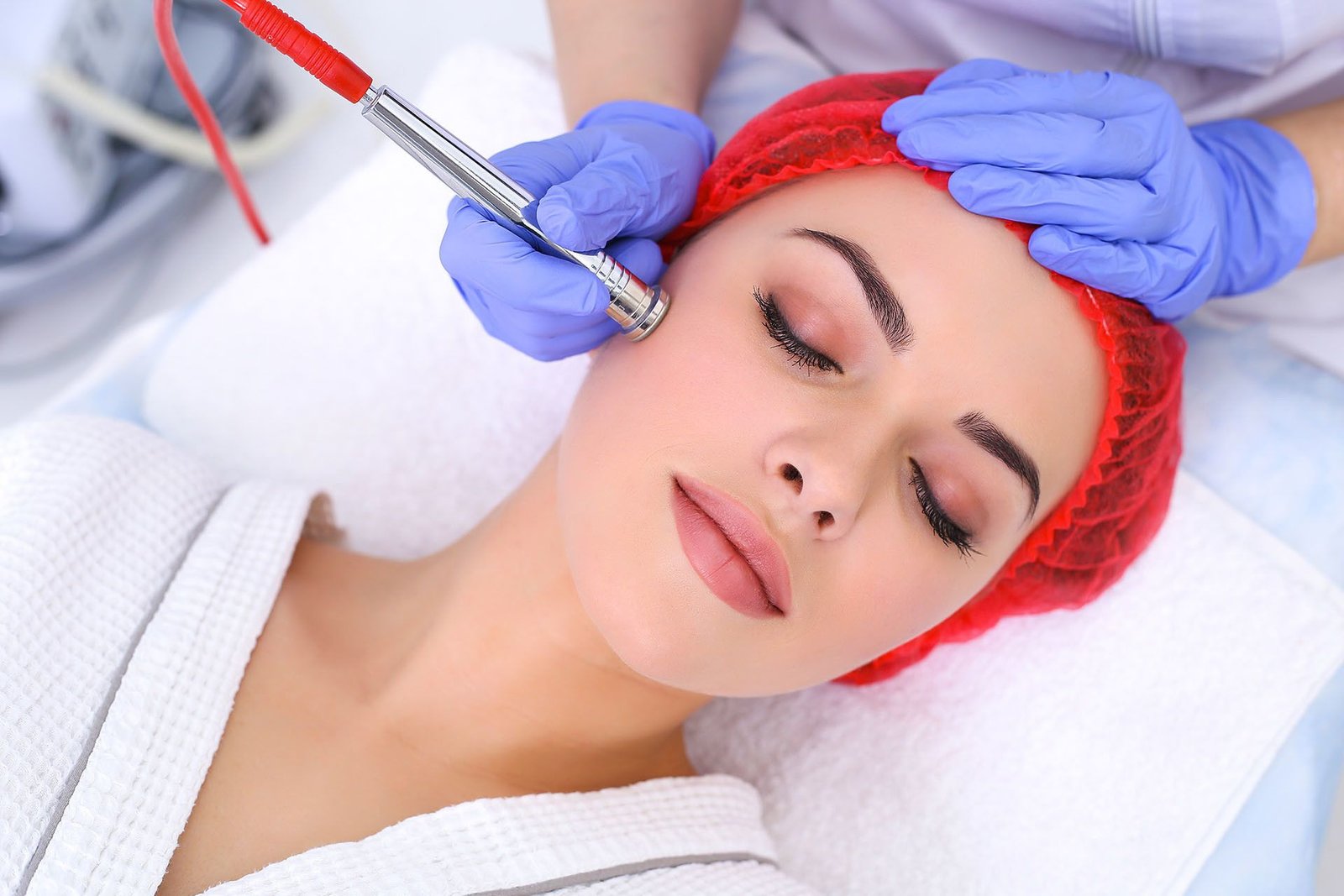Microdermabrasion
Microdermabrasion has become a popular skincare treatment in the pursuit of youthful and bright skin. Many advantages come with this non-invasive treatment, such as dead skin cell exfoliation and less visibility of wrinkles and acne scars. Let’s examine how microdermabrasion works and how it might change your skin.
Understanding the Process
What is Microdermabrasion?
Microdermabrasion is a cosmetic procedure that involves exfoliating the outer layer of the skin to reveal smoother, more youthful-looking skin underneath.
How Does it Work?
During a microdermabrasion session, a handheld device is used to spray tiny crystals or a diamond-tipped wand is gently moved across the skin, exfoliating the outer layer. The exfoliated skin cells are then suctioned away, leaving behind a rejuvenated complexion.
Benefits of Microdermabrasion
Microdermabrasion offers a myriad of benefits for your skin:
Skin Exfoliation
By removing dead skin cells, microdermabrasion promotes cell turnover, resulting in brighter and smoother skin.
Improved Skin Texture
The exfoliation process helps to minimize the appearance of pores and smoothen out uneven skin texture.
Reduction of Fine Lines and Wrinkles
Microdermabrasion stimulates collagen production, which can help reduce the appearance of fine lines and wrinkles over time.
Treatment of Acne and Acne Scars
By unclogging pores and removing acne-causing bacteria, microdermabrasion can effectively treat acne and fade acne scars.
Techniques Used
Crystal vs. Diamond Microdermabrasion
Microdermabrasion techniques primarily differ in the exfoliating agent used. Crystal Microdermabrasion employs aluminum oxide crystals, while Diamond Microdermabrasion utilizes a diamond-tipped wand for abrasion. Both methods yield remarkable results, catering to diverse skin types and concerns.
Different Types of Microdermabrasion
Crystal Microdermabrasion
Fine crystals are sprayed onto the skin during crystal microdermabrasion to exfoliate the outer layer.
Diamond Microdermabrasion
Diamond microdermabrasion uses a diamond-tipped wand to gently abrade the skin, achieving similar exfoliation results without the use of crystals.

Who Can Benefit from Microdermabrasion?
Microdermabrasion is suitable for individuals with various skin concerns, including:
Suitable Skin Types
Microdermabrasion is safe for most skin types, including sensitive skin, although it may not be suitable for individuals with certain skin conditions such as rosacea or eczema.
Skin Concerns Addressed
It is particularly beneficial for addressing concerns such as dullness, uneven skin tone, fine lines, acne, and mild acne scars.
Preparing for a Microdermabrasion Session
Before undergoing microdermabrasion, it is essential to:
Consultation with a Dermatologist
Schedule a consultation with a dermatologist to determine if microdermabrasion is suitable for your skin type and concerns.
Skincare Routine Prior to Treatment
Follow any pre-treatment instructions provided by your dermatologist, such as avoiding exfoliating products or certain skincare ingredients.
What to Expect During a Microdermabrasion Session
Duration of Treatment
A typical microdermabrasion session lasts between 30 to 60 minutes, depending on the areas being treated.
Sensations During Treatment
You may experience mild discomfort or a slight scratching sensation during the procedure, but it is generally well-tolerated.
Aftercare Tips
After undergoing microdermabrasion, it is essential to:
Sun Protection
Apply sunscreen with a high SPF to protect your skin from sun damage, as it may be more sensitive after treatment.
Moisturization
Keep your skin hydrated by applying a gentle moisturizer to prevent dryness and flakiness.
Avoiding Harsh Products
Avoid using harsh skincare products or exfoliants immediately after microdermabrasion to prevent irritation.
Potential Side Effects and Risks
While microdermabrasion is considered safe, there are some potential side effects and risks to be aware of:
Redness and Irritation
Some redness and irritation may occur immediately after treatment, but these typically subside within a few hours.
Sensitivity to Sunlight
Your skin may be more sensitive to sunlight following microdermabrasion, so it is crucial to protect it with sunscreen.
Conclusion
Microdermabrasion is a highly effective skincare treatment that offers a wide range of benefits, from exfoliating dead skin cells to reducing the signs of aging and acne. With proper preparation and aftercare, you can achieve smoother, more radiant skin with microdermabrasion.

